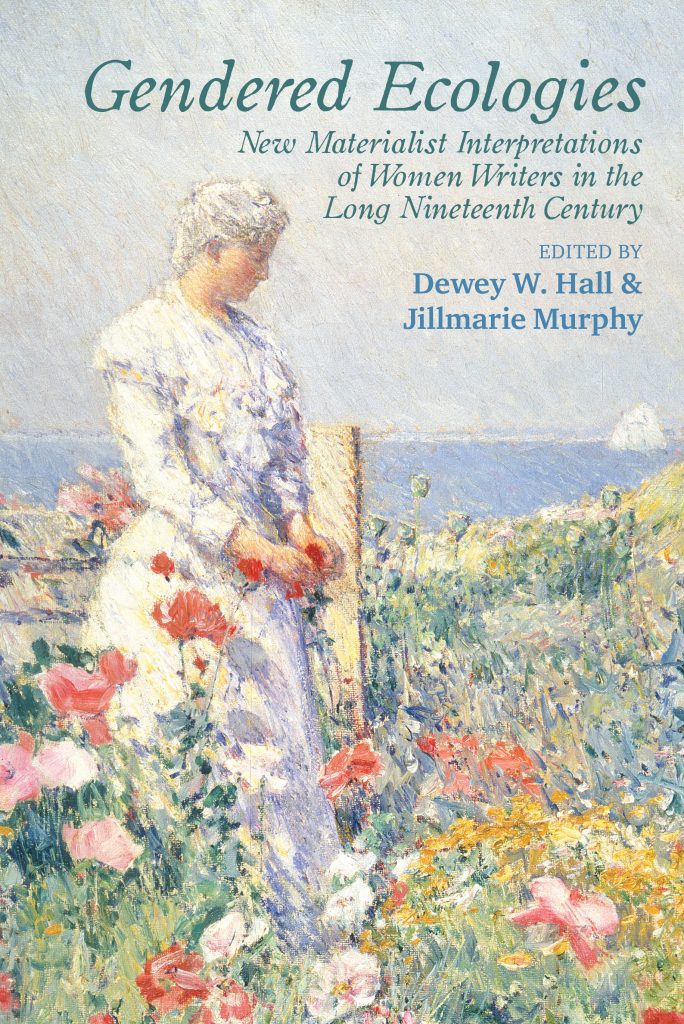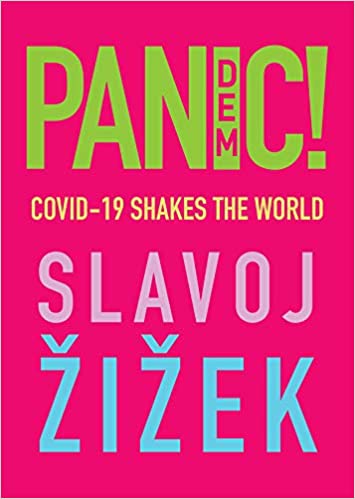
 Gendered Ecologies: New Materialist Interpretations of Women Writers in the Long Nineteenth Century
Gendered Ecologies: New Materialist Interpretations of Women Writers in the Long Nineteenth Century
By Dewey W. Hall and Jillmarie Murphy (eds.)
Publisher: Clemson University Press
Recommended by Hélène B. Ducros
Inside its gorgeous book cover, Gendered Ecologies is a multilayered opus that probes into the nature-culture relationship by interrogating gendered systems of ecological knowledge. By putting ecofeminism in conversation with nineteenth century literature, the edited volume aims at reconciling these two streams of reflection in the context of an “Anthropocene feminism” where environments, bodies, and social dynamics produce material assemblages implicating the nonhuman as much as the human perspective. As it reviews a selection of British and American women’s literary works permeated by notions of the environment–sometimes in indirect ways–the enthralling collection proposes a new materialist approach to gender-environment interrelations while unsettling the nature-culture binary and recasting the environs and gender themselves away from essentializing tendencies, static conceptualizations, and androcentric conventions.
Focusing on material agencies and nonhuman actants (animals, plants, minerals) as in-roads to transform our modes of thinking ecocritically about wordly knowledges to make them more inventive, inclusive, and just, the ten chapters constitute a wonderful addition to the field of environmental humanities that will undoubtedly appeal to human geographers, social ecologists, literary scholars, and philosophers of science. From Mary Wollstonecraft to Charlotte Brontë or Laura Ingalls Wilder–among others–the book examines how these women’s writing engaged in and redefined an understanding of a discourse about the natural world and the significance of material objects–animate and inanimate–in society’s and individuals’ perception of, connection with, and role in the environment. In showing that “matter really matters” in the way spaces and places are apprehended, the editors Dewey W. Hall and Jillmarie Murphy position the volume within deep ecology theories and highlight how women writers in the nineteenth century were not only keen observers of the natural world, but also important participants in diffusing and re-outlining natural science in ways that could be labeled “posthuman.” The editors have gathered a scholarship that will forge fruitful bridges between literature and science and incite readers to revisit their favorite novels with new awareness and sensitivity that are very timely.
 Pandemic! Covid-19 Shakes the World
Pandemic! Covid-19 Shakes the World
By Slavoj Žižek
Publisher: OR Books
Recommended by Nicholas Ostrum
Who better to tackle the novel coronavirus in a pithy 136 pages than British/Slovenian philosopher Slavoj Žižek? And who else would start begin with Jesus’ instruction to Mary Magdalene, “Noli me tangere” (“touch me not”) as a brief and quickly abandoned entrepôt to Hegelian concepts of love and human connectivity and, ultimately, the primary question of the book: why have our local, national, and globalized systems failed to contain the outbreak? The rest of Pandemic! (a play on “Panic!”) follows a similar meandering trajectory in a style now indelibly associated with Žižek. The first chapter alone weaves together such sprawling topics as Li Wenliang and Chinese authoritarianism, Russian conspiracy theories, H.G. Wells’ War of the Worlds and colonialism, disease contagion, Benjamin Netanyahu, and Martin Luther King, Jr.
The following chapters deal with a wide array of issues that converge on the societal, political, and economic factors that have transformed a virus into a pandemic. The most compelling sections come in Žižek’s rejection of Giorgio Agamben’s anti-statism and in his ultimate adoption of Bruno Latour’s Actor-Network-Theory. “Humans,” he claims, “are but one force in a potentially unbounded network of forces.” Although they are meaningless to the greater whole which has no intentionality, they still wield a wide degree of agency, especially when an informed society acts together. His plan for combatting Covid, however, is somewhat less compelling: “’a disaster Communism’ as an antidote to (the) disaster capitalism” that has exacerbated the situation. Needless to say, Žižek does not advocate a Soviet or Maoist authoritarianism, but a temporary and limited state of exception for national and supra-national governments predicated on a social contract. If the governing body fails to curb the coronavirus, it has not upheld its responsibilities and therefore should suffer appropriate consequences through elections or other forms of replacement or dissolution. Once the threat is contained, moreover, a new socialistic order with a more global and scientific consciousness should follow. Even if Žižek’s communistic cure is more provocative and prescriptive than convincing, his diagnosis of the socio-political disease is uniquely insightful. For that reason alone, Pandemic! is a worthwhile and urgent read.
Published on August 4, 2020.




